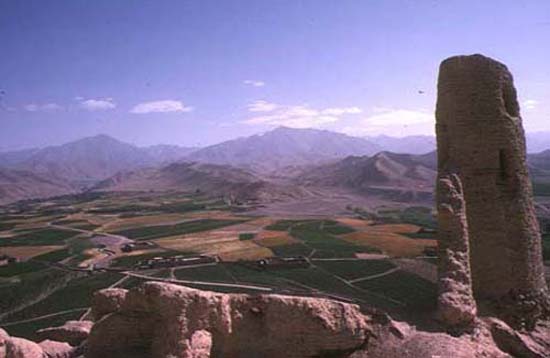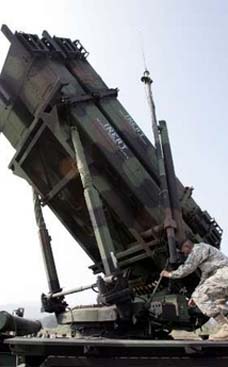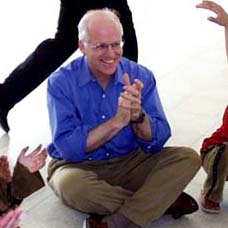
"Afghans, legendary for their tenacity in battle, have had their courage shattered by the gruesome bloodletting of recent decades. The odds were stacked so heavily against them, the weapons so mismatched, the perpetrators--Afghan and foreign alike--so insensitive to the strictures of honorable conflict, that courage became irrelevant. Afghans are now internally injured. They constitute an entire society suffering from post-traumatic stress disorder. And so, it does not take much to intimidate them. A scattering of menacing handbills, some judiciously executed murders--outrageous enough in the choice of victims or venues, such as the night watchman who was hanged on the grounds of the middle school he protected just east of Kandahar--suffice to scare ordinary Afghans. They no longer have the psychological resources to take risks. And so, the arduous task of rebuilding one of the most isolated, war-shattered, and strategic countries in the world is now complicated not just by the danger to those delivering the aid, but also because the beneficiaries are growing afraid to be seen receiving the help. " Morocco RPCV Sarah Chayes has made a home in Kandahar, Afghanistan, became fluent in Pashto, one of the main Afghan languages, and devoted her energies to rebuilding a country gutted by two decades of war
Sarah Chayes writes: The night fairies
Afghanistan: The night fairies
By Sarah Chayes
March/April 2006 pp. 17-19 (vol. 62, no. 02) © 2006 Bulletin of the Atomic Scientists
Subscribe today!
Last fall, an elderly gentleman came by my house, located on a dirt street near the Kandahar bazaar. His eyes were a little rheumier than I remembered, his white beard wispier. A shawl was draped across the top of his turban and around his shoulders to protect against the autumn chill.
He is the village elder of a hamlet I used to visit regularly, located in a tangle of pomegranate orchards just beyond a line of rocky hills that looks like the crenelated back of a dinosaur. The dairy cooperative I was running then used to collect milk there every morning, two liters from one family, five from another, carried to our truck by children and oldsters in a riot of receptacles. Now, in fulfillment of a year-old promise, I wanted to buy pomegranates from this village.
I apologized to the old man for sending my staff to fetch him. "I didn't want to come see you myself," I said, "for fear of causing you trouble."
"No, no," he answered with a frank smile. "I wouldn't have given you permission to come."
This is the second Kandahar-area farmer who has broken with the deep-rooted local tradition of hospitality--as well as the lure of a higher price for his produce--and asked me not to approach his village, for fear of retaliation once I leave. Even more than the frequent explosions aimed at U.S. or Canadian military convoys, the ambushes, and the murders in mosques, these polite refusals of concrete assistance by struggling villagers signal how far the security situation has deteriorated in the past year.
Parliamentary elections last fall, hailed as free and fair--or at least as free and fair as anyone could expect in a place like Afghanistan--have allowed many Western observers to regard the nation-building process here as a success. In Kandahar, those elections were considered a joke--even by the people who won. Less than a quarter of the population voted, and, as most locals predicted, the counting process functioned like a bazaar with plenty of extra zeros for sale.
In reality, the four years since the Taliban's demise have been characterized by a steady erosion of security in distinct phases. The most recent phase, signaled by the rebuffs I received from the farmers, may represent a point of no return. These rebuffs are the consequence of a highly effective intimidation campaign that has been carried out in tightening circles around Kandahar by, for lack of a better term, resurgent Taliban. Handbills appear in village mosques threatening anyone who dares collaborate with foreigners or the Afghan government. Homes receive armed visitors, demanding provisions or other assistance. One of my farmer friends, afraid even to pronounce their name, refers to them as "fairies who come at night."
A word about fear. Afghans, legendary for their tenacity in battle, have had their courage shattered by the gruesome bloodletting of recent decades. The odds were stacked so heavily against them, the weapons so mismatched, the perpetrators--Afghan and foreign alike--so insensitive to the strictures of honorable conflict, that courage became irrelevant. Afghans are now internally injured. They constitute an entire society suffering from post-traumatic stress disorder. And so, it does not take much to intimidate them.
A scattering of menacing handbills, some judiciously executed murders--outrageous enough in the choice of victims or venues, such as the night watchman who was hanged on the grounds of the middle school he protected just east of Kandahar--suffice to scare ordinary Afghans. They no longer have the psychological resources to take risks. And so, the arduous task of rebuilding one of the most isolated, war-shattered, and strategic countries in the world is now complicated not just by the danger to those delivering the aid, but also because the beneficiaries are growing afraid to be seen receiving the help.
The Afghan government's response to these developments has been characteristically weak. Despite a change in governors in Kandahar, provincial officials and security forces continue to act as predators, amassing money and power, treating inhabitants like dirt rather than serving and protecting them. What villagers here need is a reliable police force that knows the ways of the countryside, patrols regularly, treats people with respect, and protects them. "Community policing" is the American term for it. Instead, the Afghan security forces have adopted a war-fighting mentality from their American mentors and sally forth on occasional raids, the soldiers sporting dark glasses and hostile attitudes. Then they return to town, leaving the people alone to deal with the consequences, at the hands of the "fairies who come at night."
U.S. officials are practically ignorant of this silent advance of fear. And their response to the exposed tip of the iceberg--open violence--has been misguided. Despite tough proclamations and battles against so-called insurgents in isolated valleys, U.S. military and civilian officials remain obsessed with "Al Qaeda" and any possible manifestations of an Osama bin Laden-style, ideological confrontation. This concern acts as a set of blinkers, blinding Americans to the real problems in Afghanistan and vastly contributing to the Afghans' disillusionment.
The fact is, except in a training capacity, Al Qaeda hardly has any presence here. This is logical: Why would Al Qaeda send Arab or Chechen operatives to notoriously chauvinistic southern Afghanistan, which hated the domineering Arabs when they were guests of the Taliban, and where foreigners stick out like Rudolph the Red-Nosed Reindeer? For ideological combat against the West, Iraq is a far more convenient and penetrable battleground, which is one reason why countless more Americans die there than in Afghanistan.
Even the "suicide bombings" in Afghanistan that have garnered mentions in the Western press of late are often something else. In one case I investigated carefully--the target, an Afghan official, was a friend of mine--much evidence contradicted the notion that the attack was a suicide bombing, as it was immediately labeled: the condition of my friend's body, the type and location of the survivors' wounds, and eyewitness descriptions. Everything pointed to a remote-controlled mine planted ahead of time. But no Afghan or U.S. official bothered to collect this evidence or to examine it seriously when it was presented to them.
Why such sloppiness? Because the terrorist suicide bombing explanation suits everyone. Americans are comfortable spending their resources searching for the Al Qaeda bogeyman; the real perpetrators take cover behind the Al Qaeda label; and Afghan officials are absolved of complicity or incompetence and the responsibility to properly investigate.
The steadily worsening situation in southern Afghanistan is not the work of some ineffable Al Qaeda nebula. It is the result of the real depredations of the corrupt and predatory government officials whom the United States ushered into power in 2001, supposedly to help fight Al Qaeda, and has assiduously maintained in power since, along with an "insurgency" manufactured whole cloth across the border in Pakistan--a U.S. ally. The evidence of this connection is abundant: Taliban leaders strut openly around Quetta, Pakistan, where they are provided with offices and government-issued weapons authorization cards; Pakistani army officers are detailed to Taliban training camps; and Pakistani border guards constantly wave self-proclaimed Taliban through checkpoints into Afghanistan.
But beleaguered Afghans have a hard time getting U.S. political and military officials to focus on these two factors, which feed on each other. U.S. personnel cling to the fictions that Afghans are responsible for the local officials who rule over them--despite the overwhelming moral and material support the United States has provided these officials--and that the Pakistani government is cooperating in the war on terror. And so the Afghan villagers, frightened, vulnerable, and disillusioned, are obliged to come to terms with the "fairies who come at night."
This state of affairs is so bewildering that Kandaharis have reached an astonishing conclusion: The United States must be in league with the Taliban. They reason that America, with its power and riches, could bring an end to the "insurgency" in a month, if it so chose. They figure that America remains a close and munificent ally of Pakistan, the country that is sponsoring the "insurgency," and so the continuing violence must be a deliberate element of U.S. policy. The point is not whether there is any factual basis for this notion, it's that everyone here believes it. In other words, in a stunning irony, much of this city, the Taliban's former stronghold, is disgusted with the Americans not because of their Western culture, but because of their apparent complicity with Islamist extremists.
A closed circuit of shortsighted policies has brought the United States to this pass: All other goals, such as democracy and reconstruction, have been consistently subordinated to the obsession with Al Qaeda, despite lip service to the contrary. Until U.S. decision makers change course and take responsibility for the situation they have created; until they demand accountability from the provincial officials they ushered into power; until they provide material support to those Afghans brave enough to assist them; until they react as strongly to the death of a respected Afghan official as to a grenade lobbed at a military convoy, the ring of fear will continue to close in on Kandahar, until, as residents are now predicting, the city is at war again.
Back to top ^
Sarah Chayes runs Arghand, a cooperative business in Kandahar, where she has lived since late 2001. She was a Paris-based reporter for National Public Radio from 1997-2001.


















